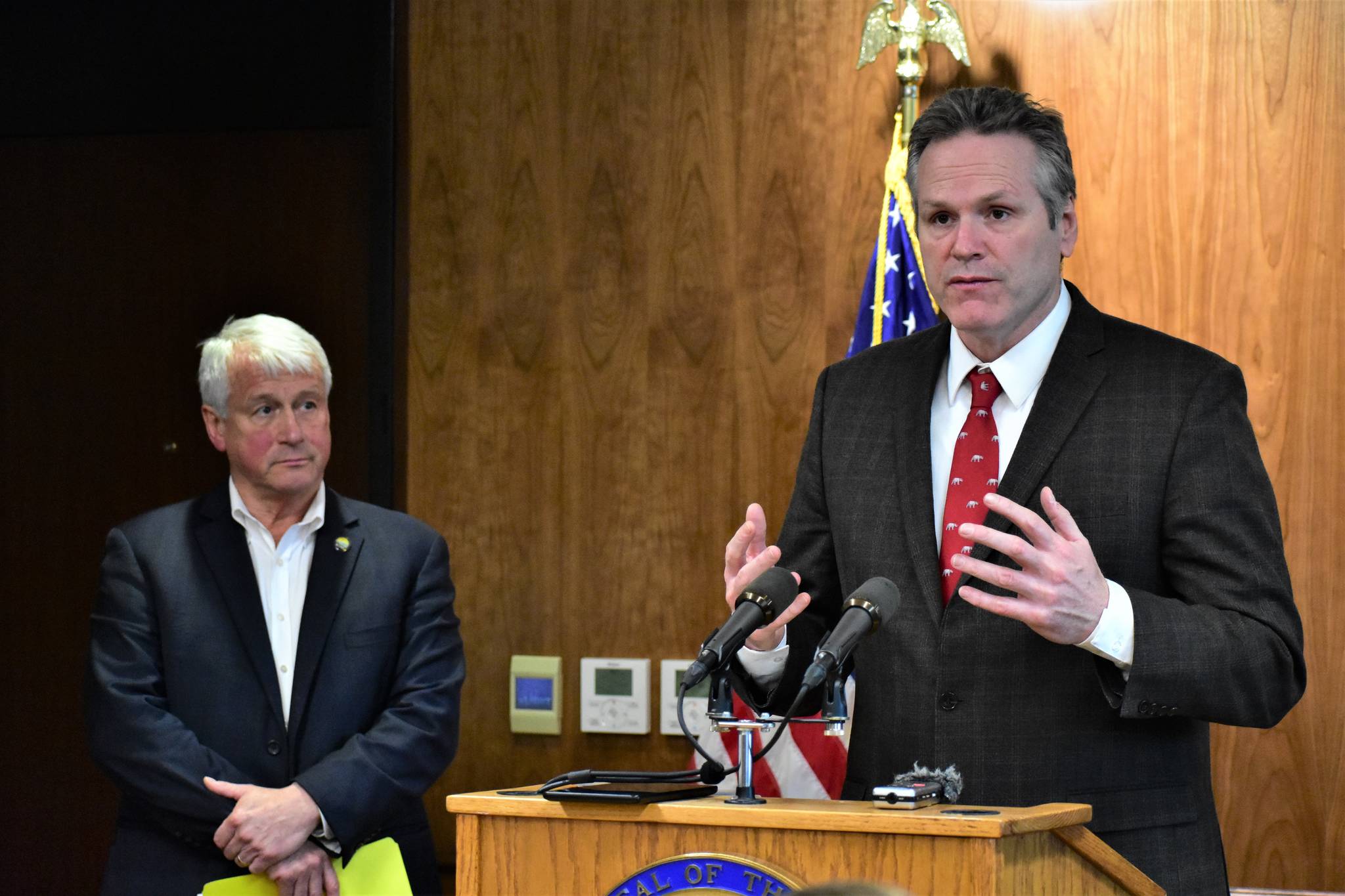Gov. Mike Dunleavy and Department of Transportation and Public Facilities Commissioner John MacKinnon met with reporters Wednesday to announce the members of the Alaska Marine Highway Working Group.
The group will be responsible for draft a plan to make the state’s struggling ferry system into a more sustainable operation with a long term plan.
The group will be chaired by Vice Adm. Tom Barret, U.S. Coast Guard (Ret), who from 2007 to 2009 served as the Deputy Secretary of the U.S. Department of Transportation. He is currently president of the Alyeska Pipeline Service Company.
Barret will serve in one of three public positions on the board. The other two seats open to the public will go to former Alaska Sen. John Torgerson, R-Kasilof, and Wanetta Ayers, executive director of Commonwealth North Inc, a public policy think tank.
Representing the three unions which work on the ferries, the Inland Boatmans’ Union of the Pacific, the International Organization of Masters, Mates and Pilots and the Marine Engineers’ Beneficial Association will be Ben Goldrich, Juneau representative for MEBA.
Lee Ryan, owner of Ryan Air Services and member of the Aviation Advisory Board will represent the aviation industry for the group. Tony Johansen, from Fairbanks contracting company Great Northwest Inc. will represent roads and highways. Representing the Marine Transportation Authority Board will be Southeast Conference Executive Director Robert Venables.
Lastly, Rep. Louise Stutes, R-Kodiak and Sen. Bert Stedman, R-Sitka, will represent the Legislature in the working group.
MacKinnon told reporters because of Alaska’s diverse needs it was important to incorporate voices from outside regions served by the ferry system and in other industries besides maritime transportation.
“Because in Alaska you can’t just look at one mode of transportation. You’ve got to take it all into consideration,” MacKinnon said. “It’s not just the Marine Highway, it’s the infrastructure that gets us to the Marine Highway.”
The current condition of the Marine Highway fleet was due to a lack of maintenance over the years, MacKinnon said. Over the years funds for ship maintenance hadn’t been placed into a replacement fund or a replacement schedule, “it’s been done haphazardly,” MacKinnon said.
Replacement had never been part of the long-term plan, MacKinnon said, and in some ways DOT had been at the mercy of annual appropriations and bond issues, according to MacKinnon.
Dunleavy said he didn’t want to lay blame on past administrations or Legislatures and was determined to fix the Marine Highway issue going forward.
“If there are individuals that wish to hang (the ferry situation) on this administration, that’s fine. We’re big boys, we’re going to work at fixing this thing,” Dunleavy said.
The governor said he wanted to focus on stability and sustainability.
“We’re going to make sure that we have something in place so that future administrators and legislators have something to follow.”
• Contact reporter Peter Segall at 523-2228 or psegall@juneauempire.com.

